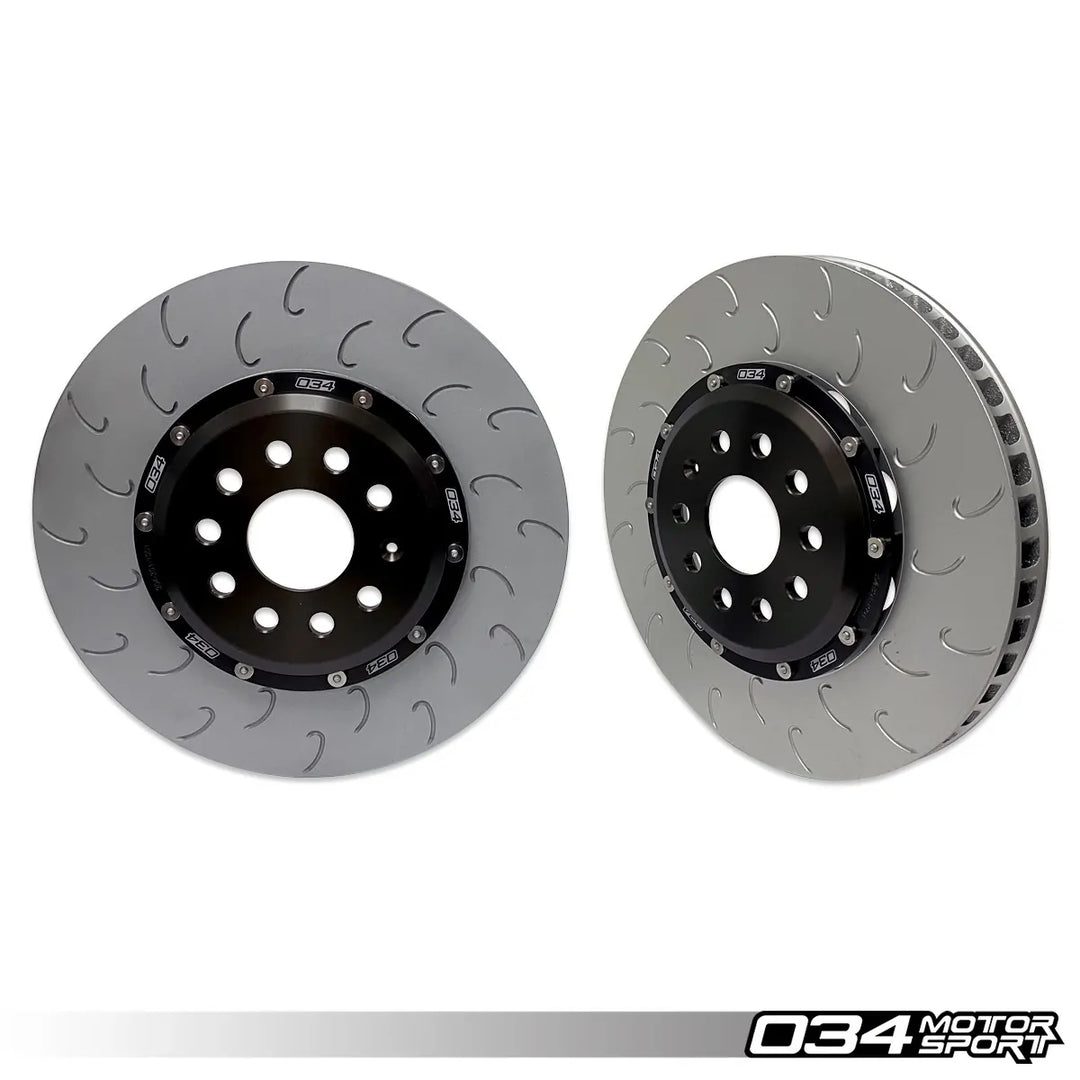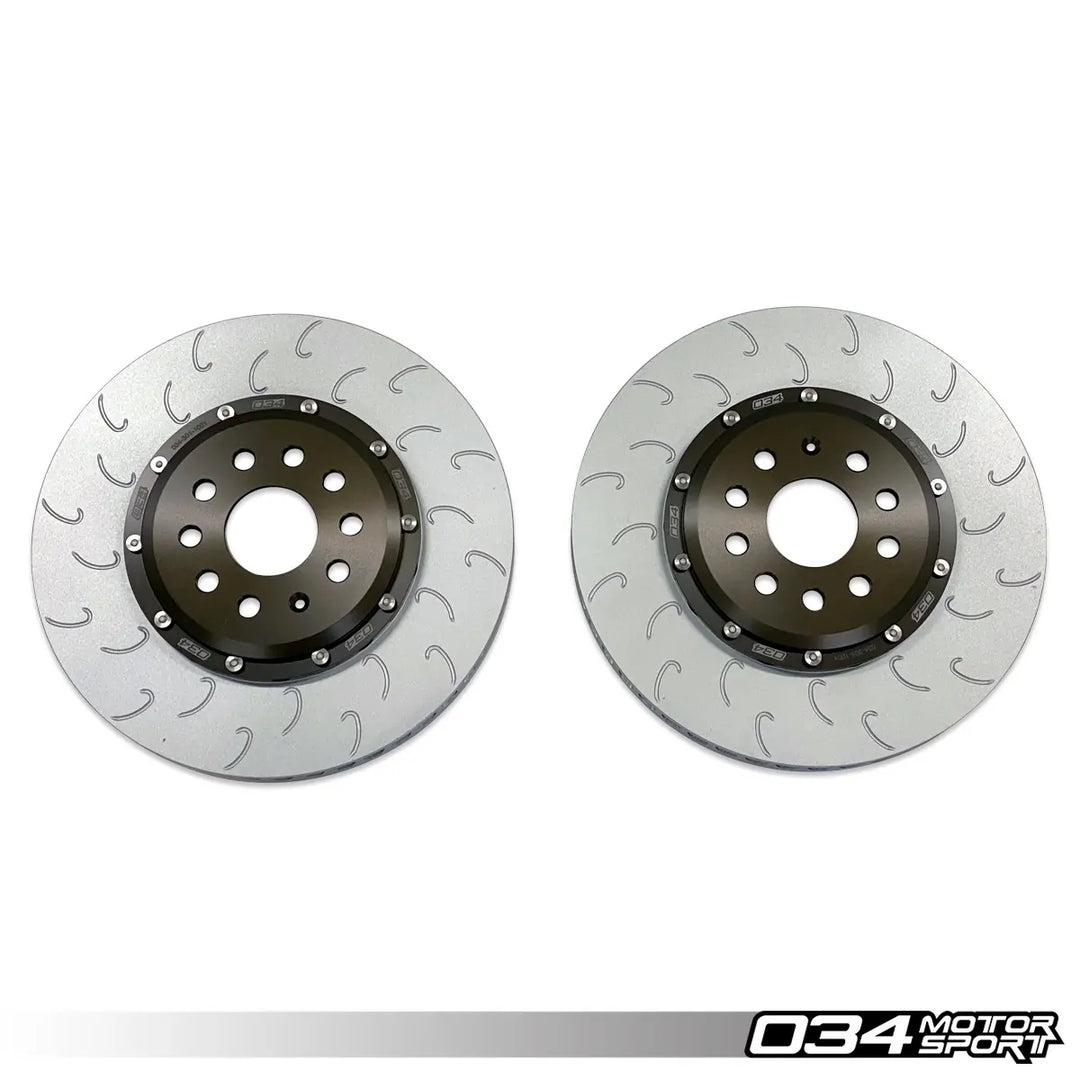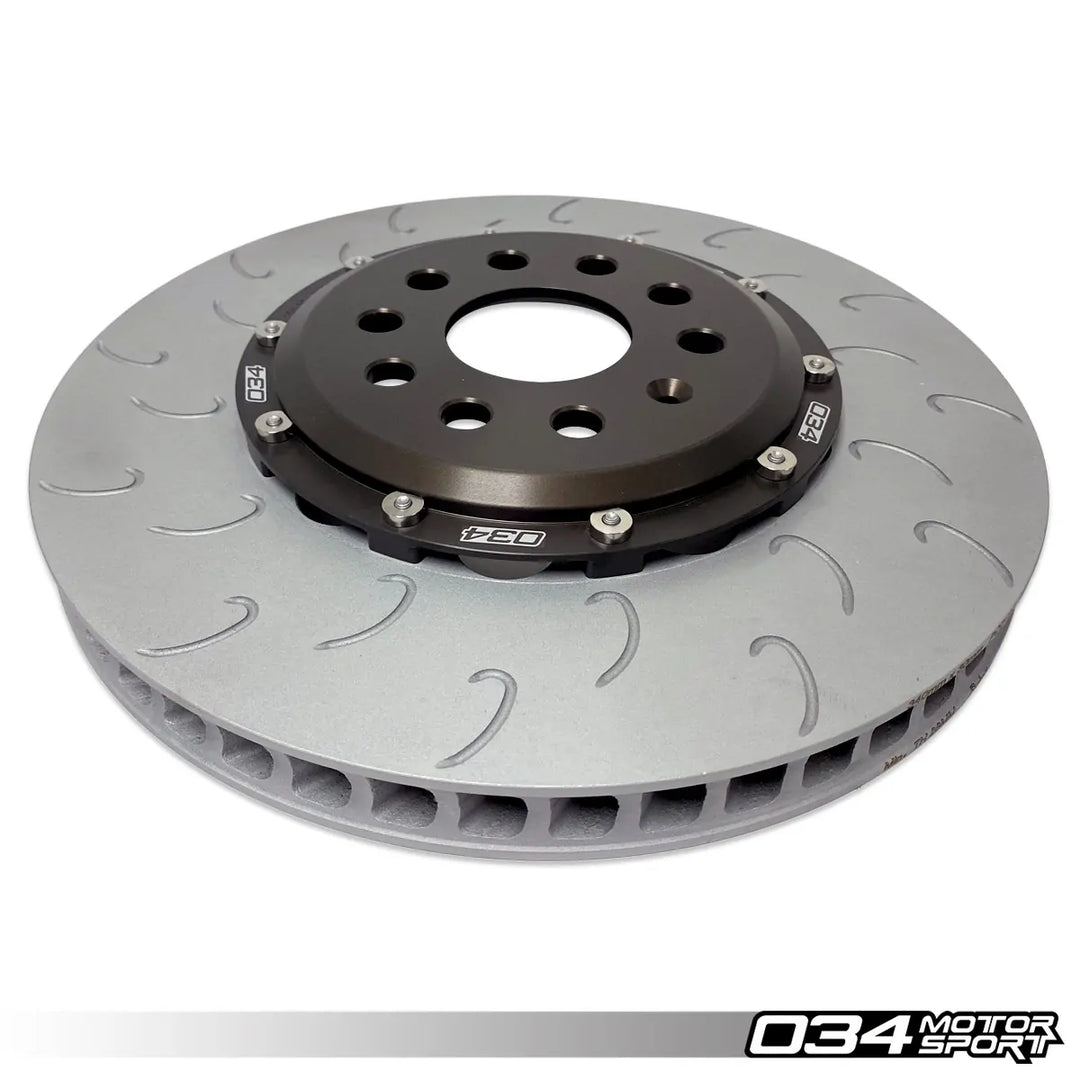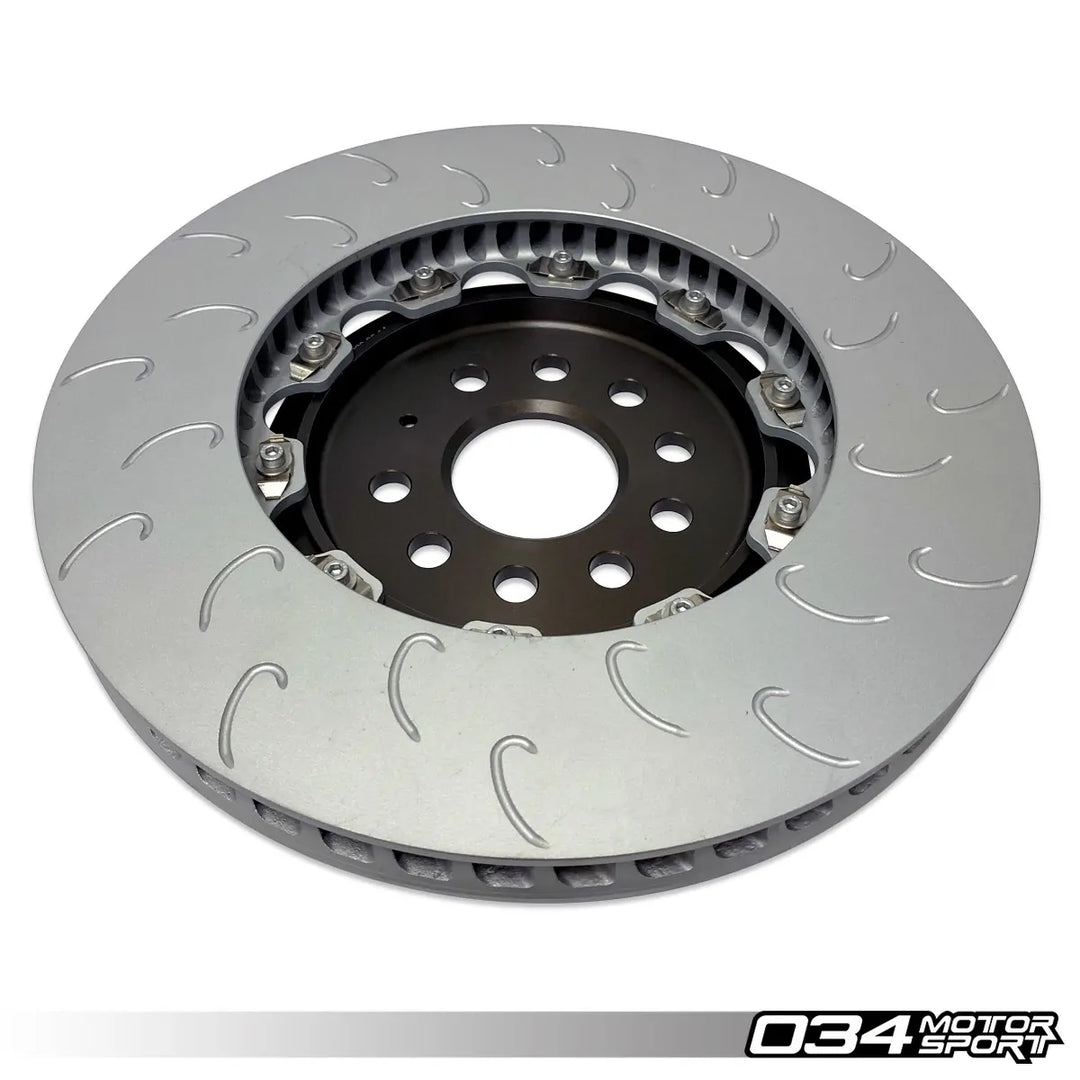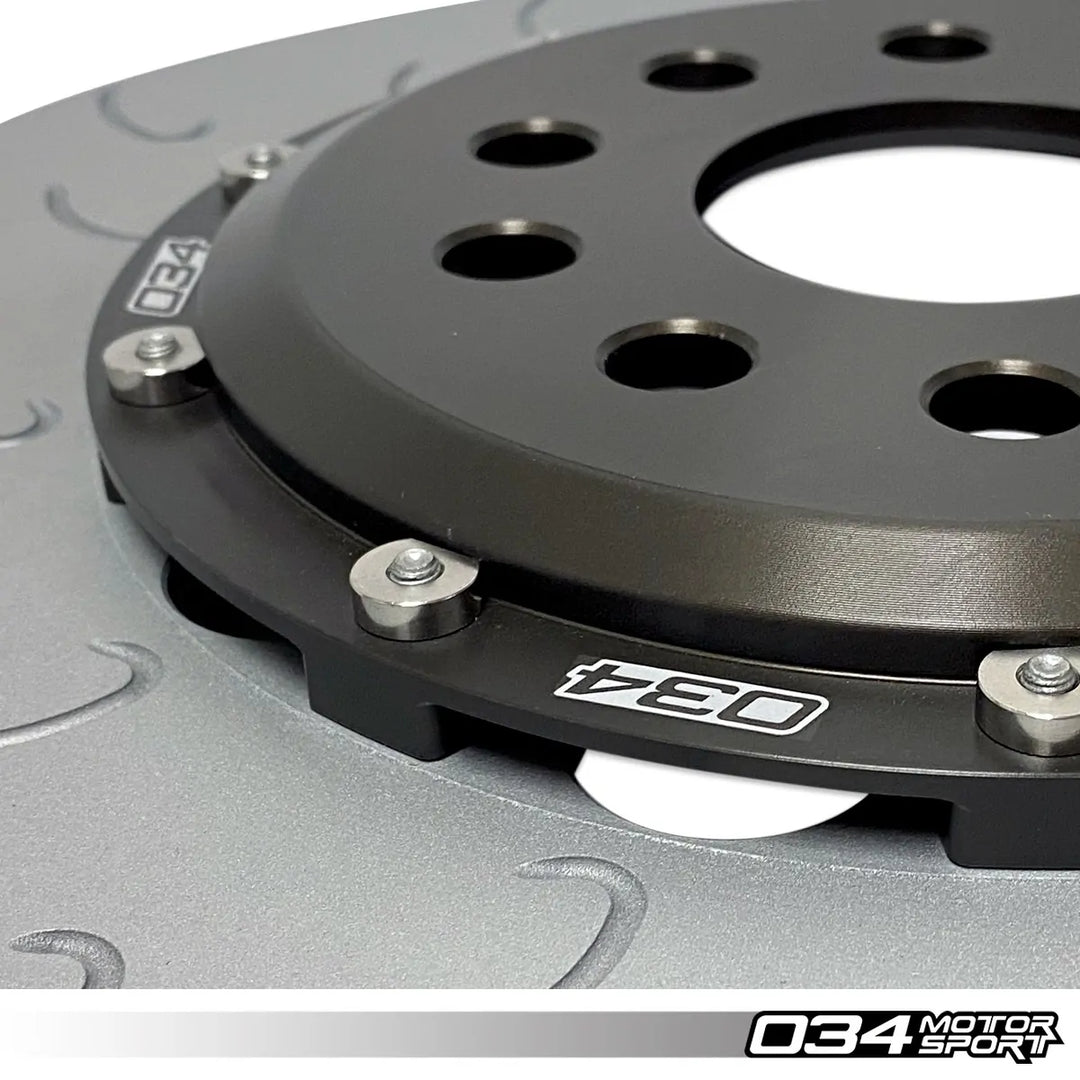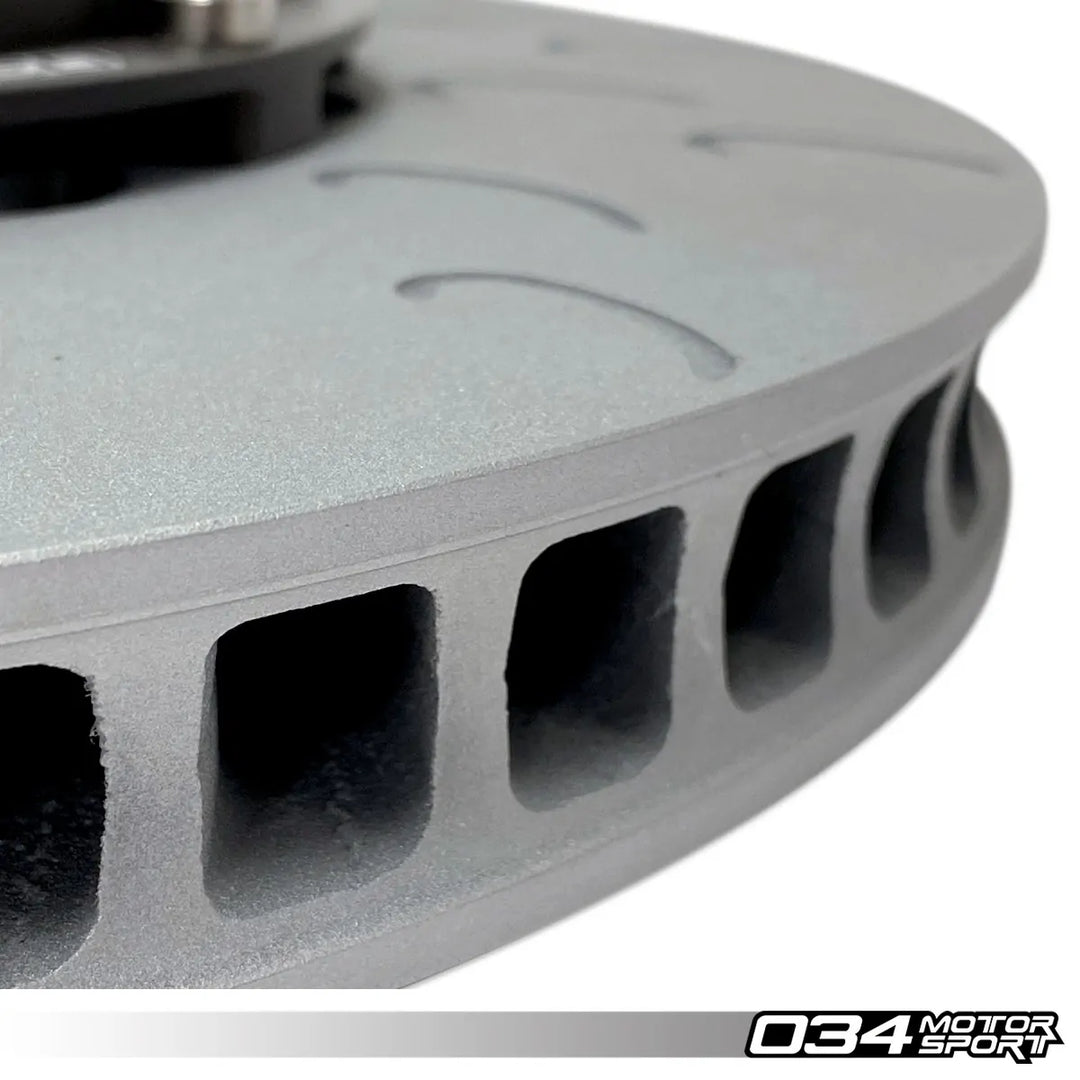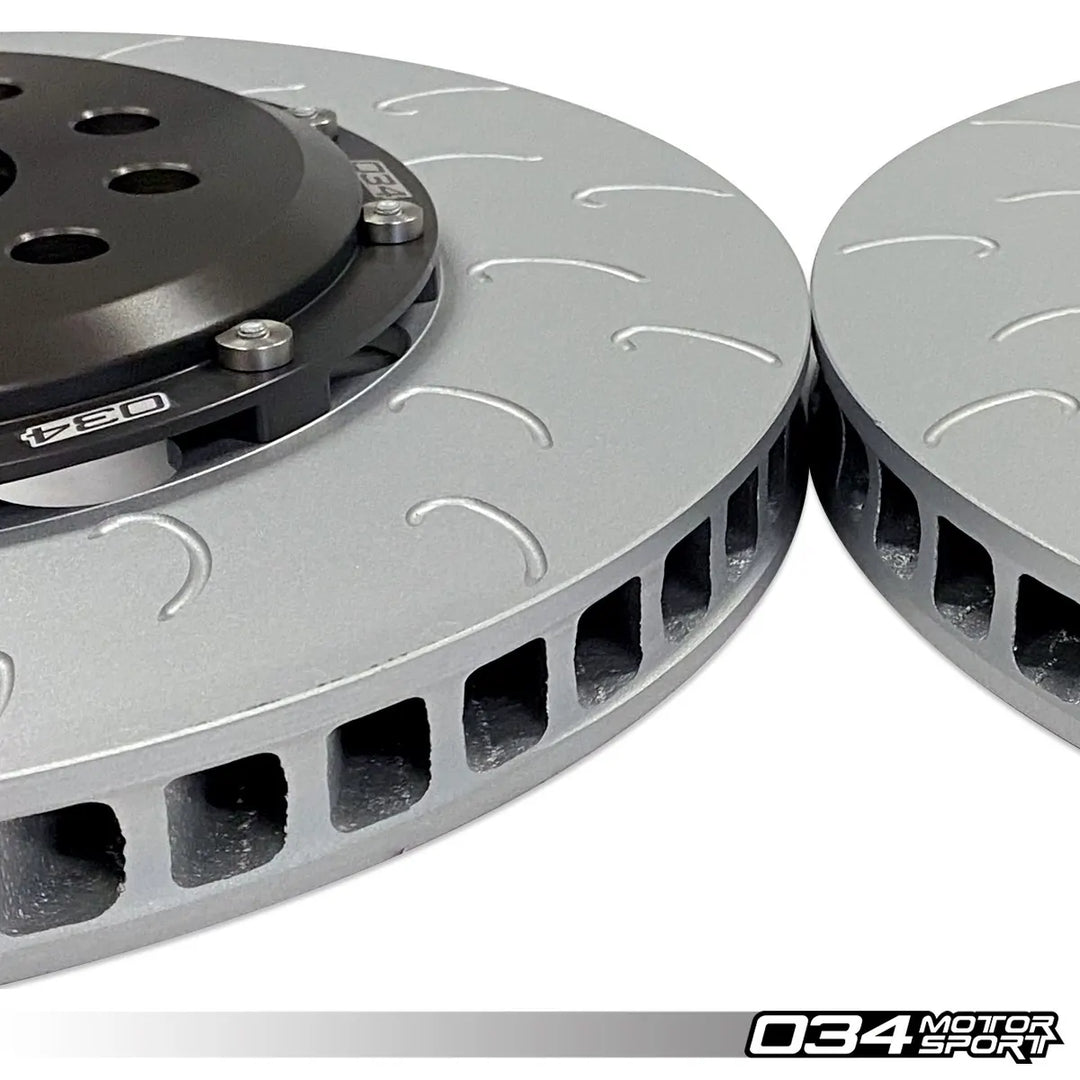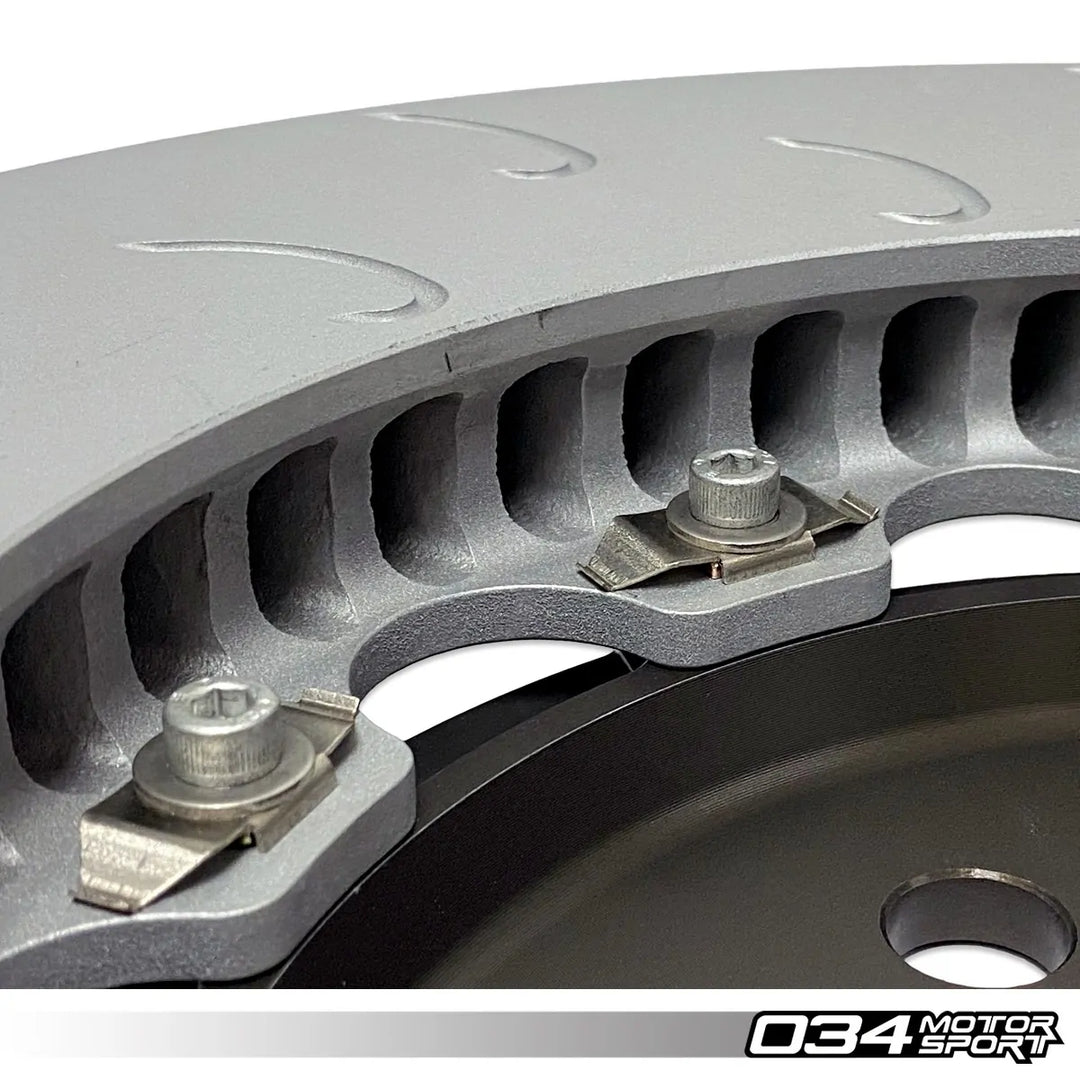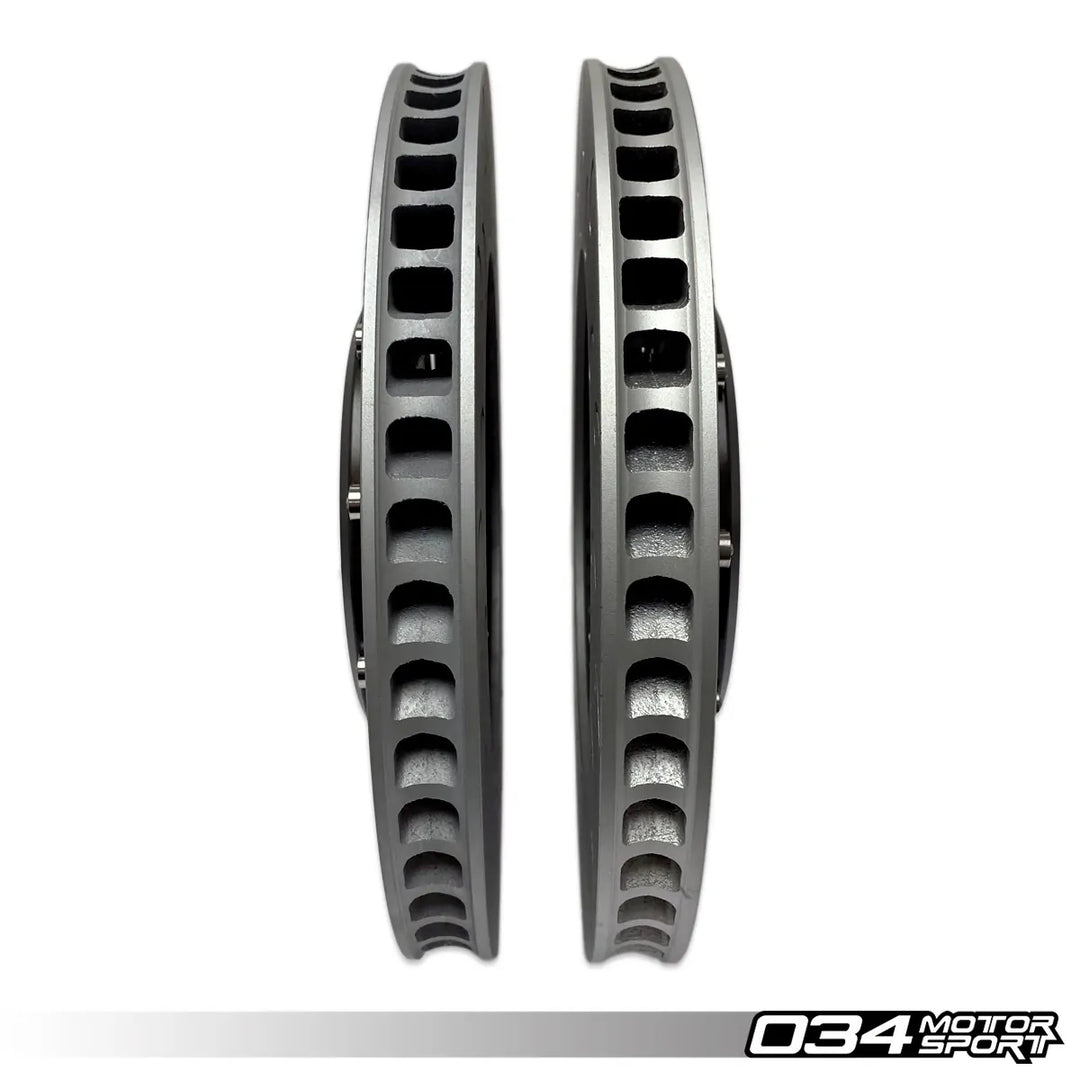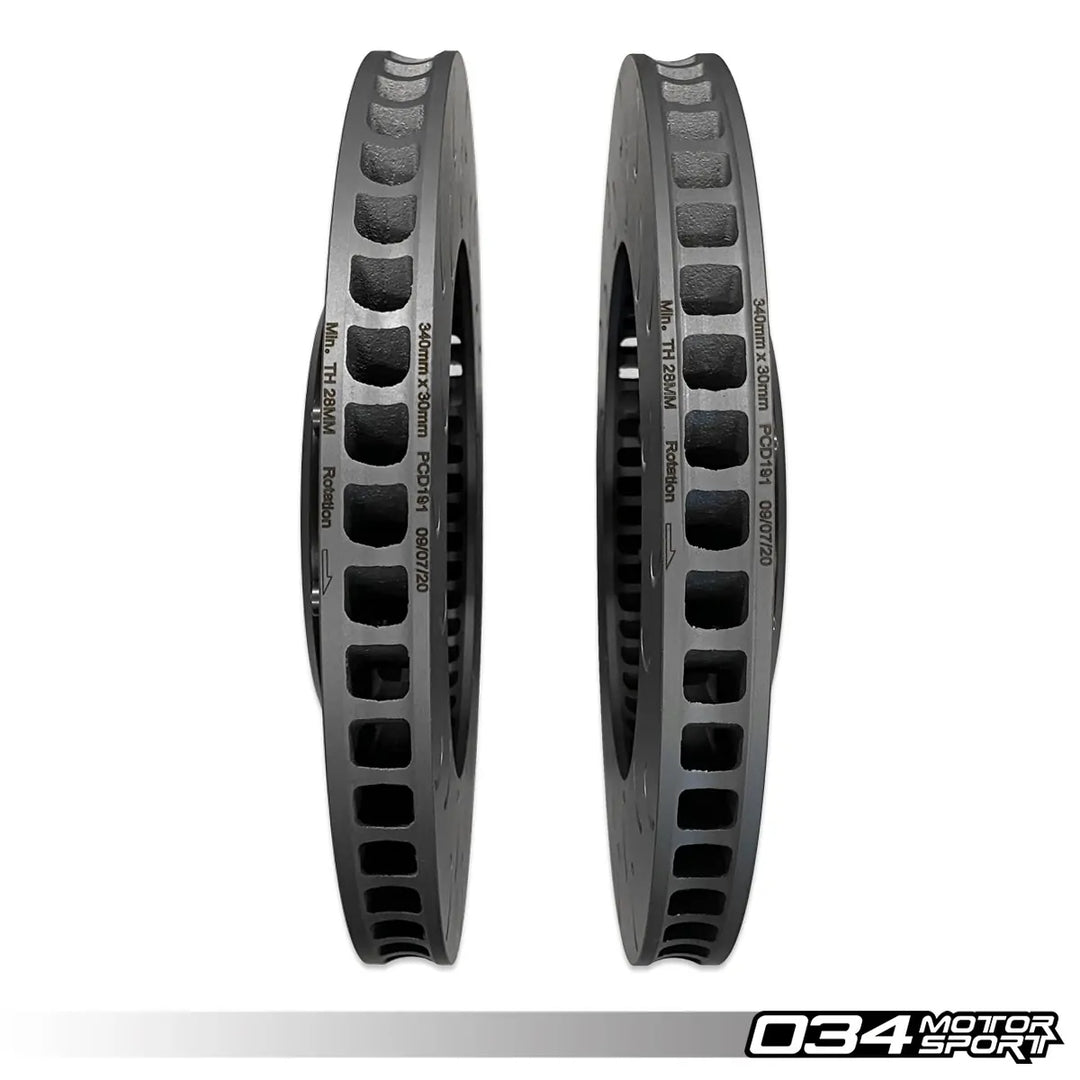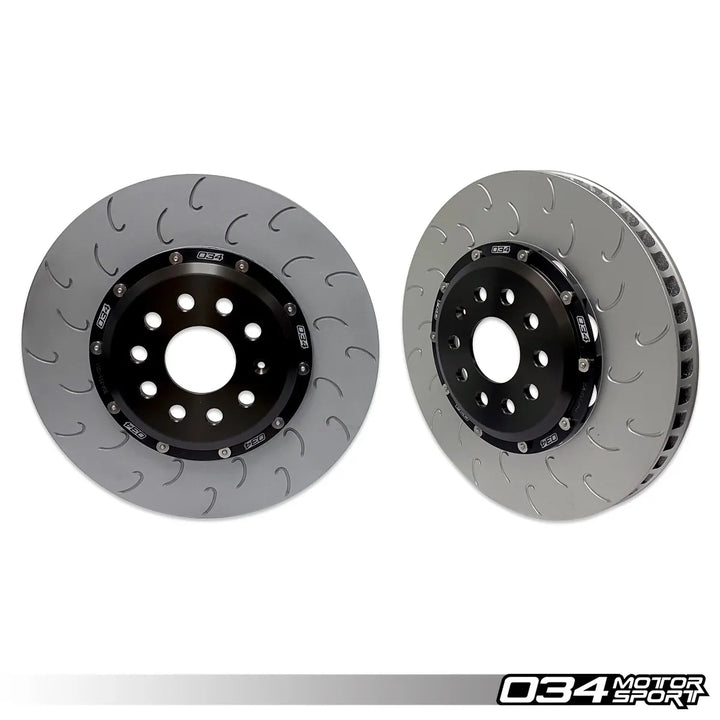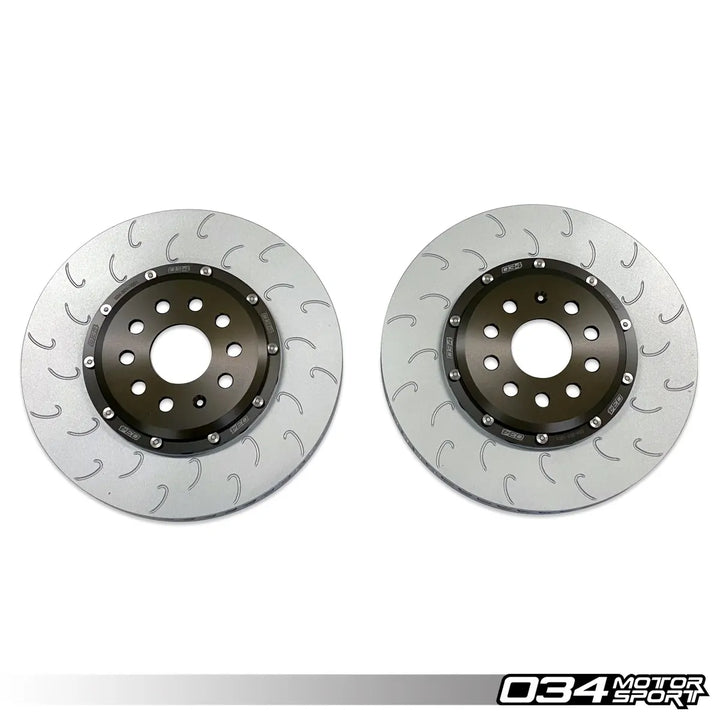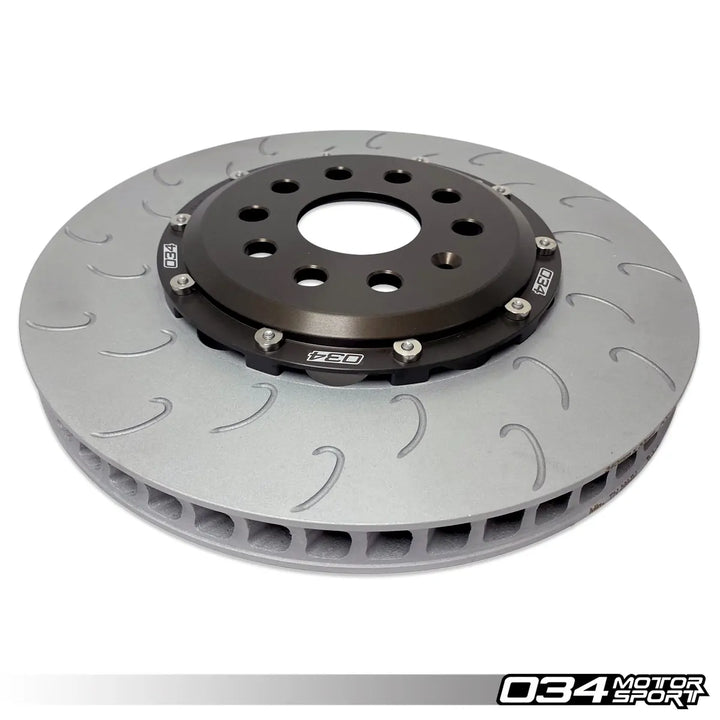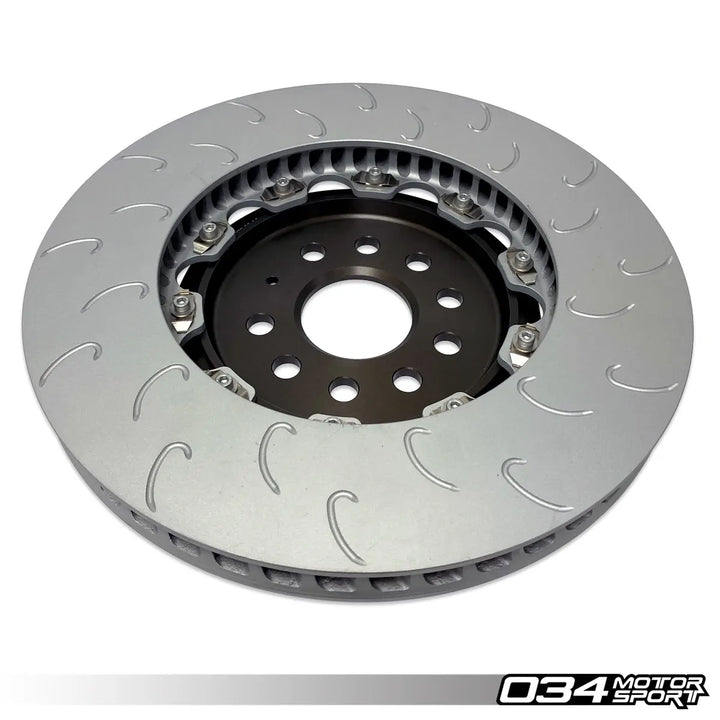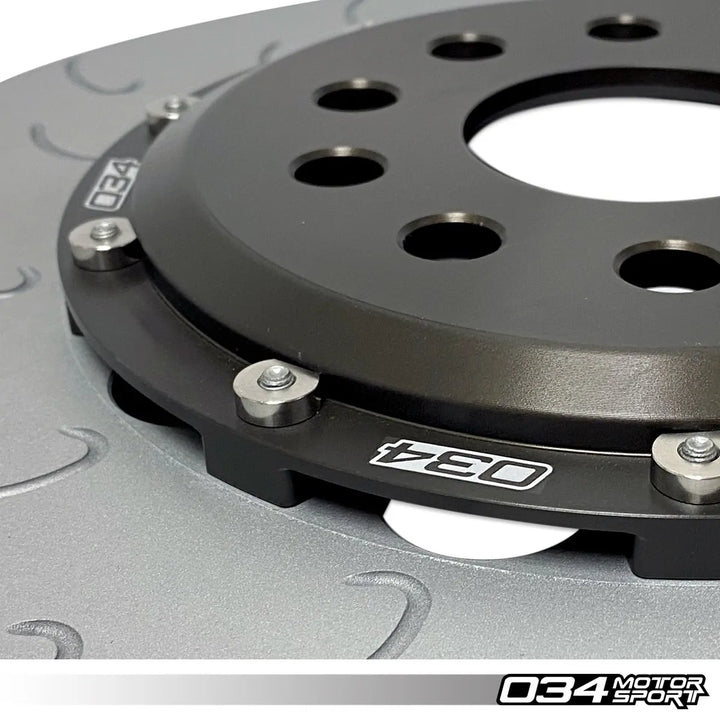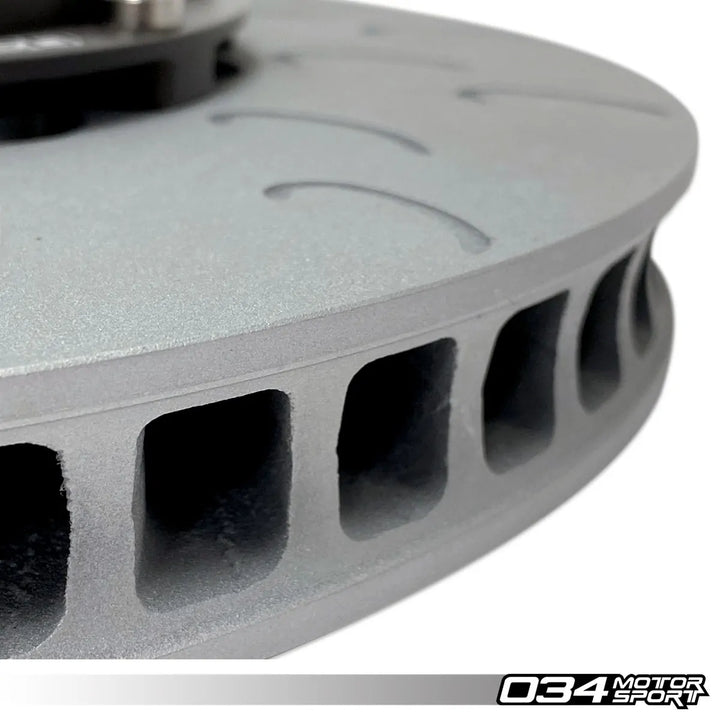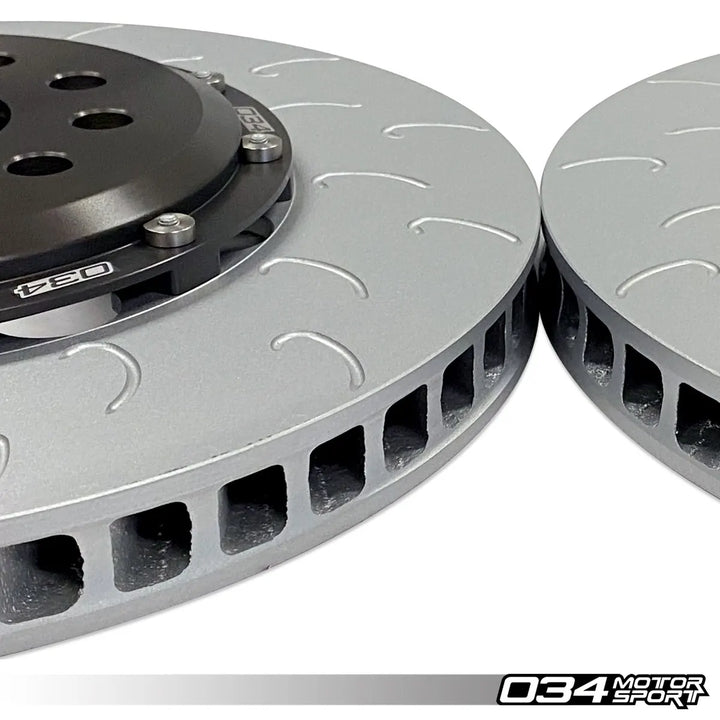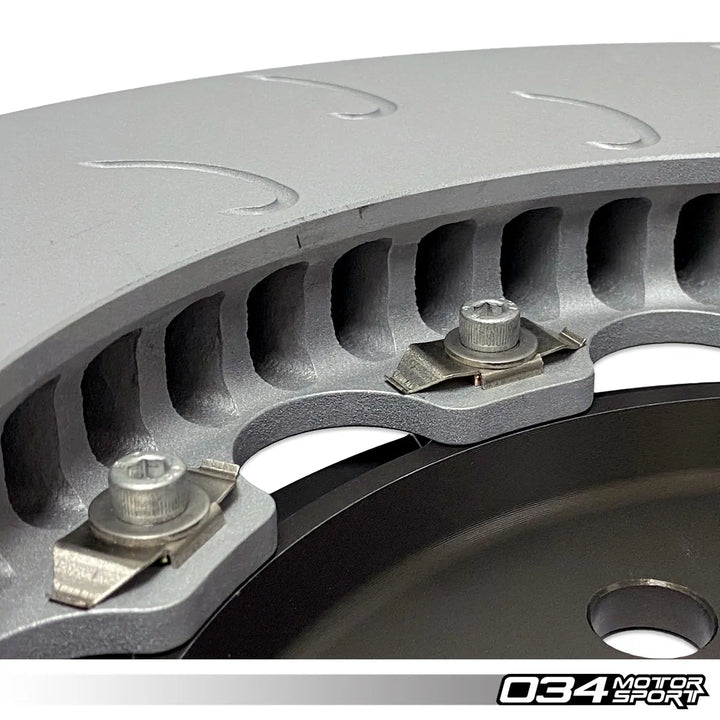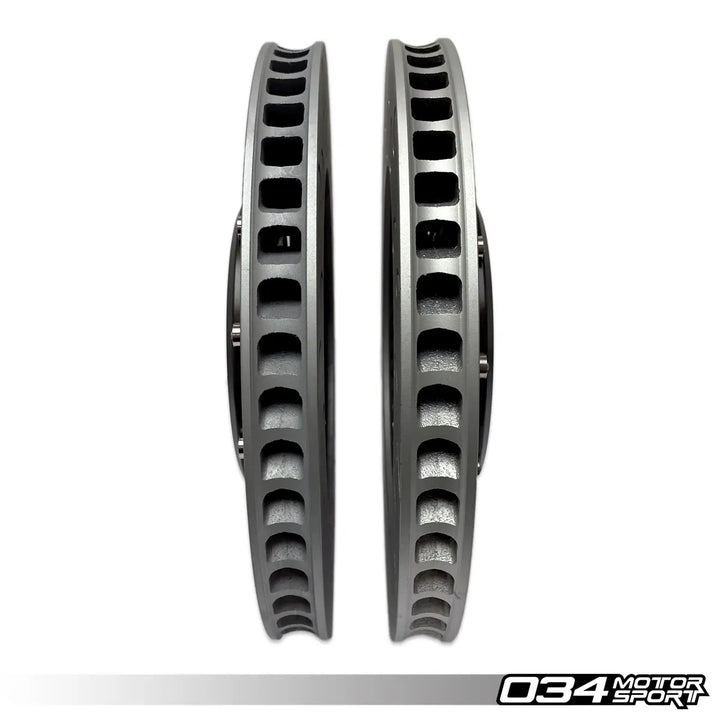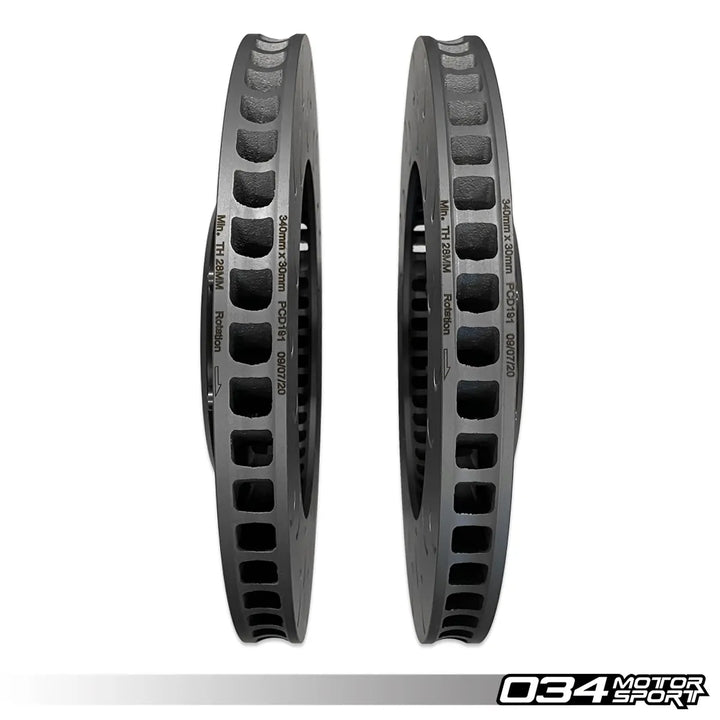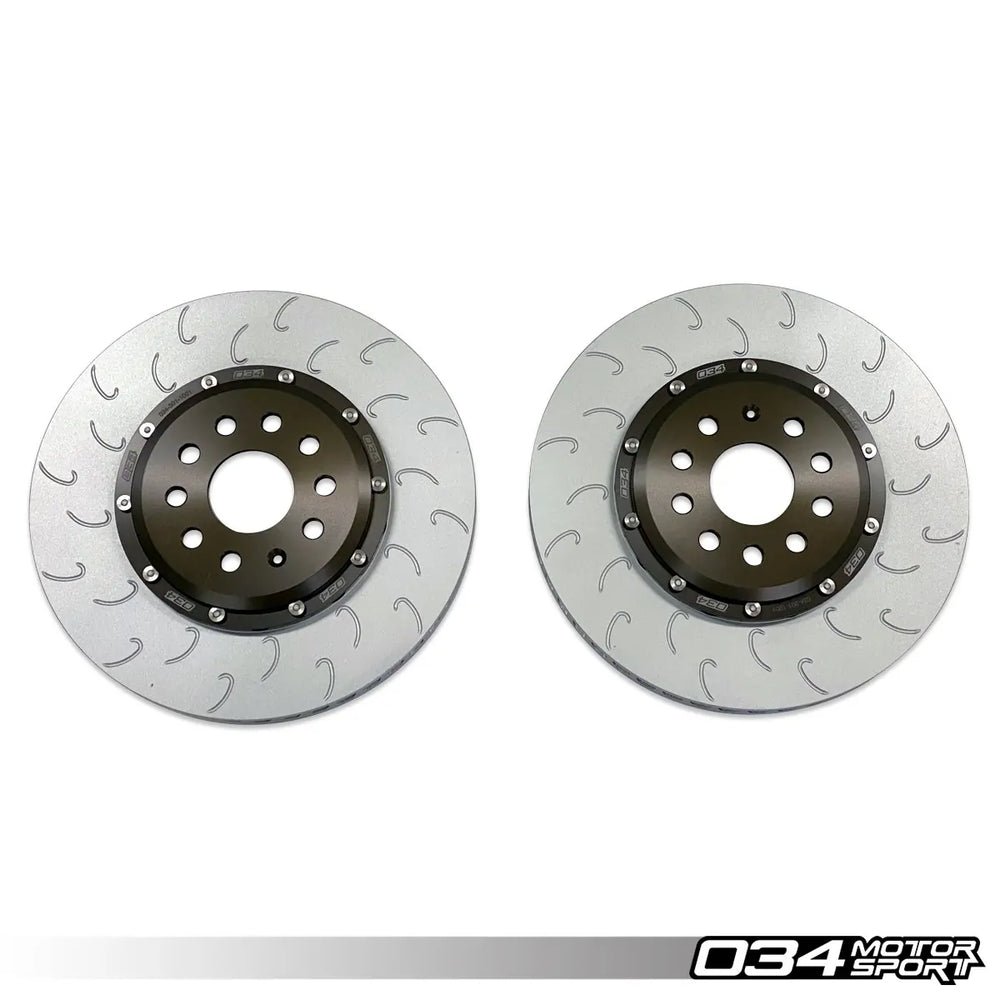Description
PRODUCT DESCRIPTION
The 034Motorsport 340mmx30mm 2-Piece Floating Front Brake Rotor Upgrade Kit for Volkswagen & Audi MQB and MQB EVO vehicles with 2.0T TFSI (Performance Pack) is a complete replacement brake rotor kit, designed to work flawlessly with the factory front calipers. Upgrading your front rotors will increase overall braking performance in street, track, and HDPE driving conditions, as they keep your brakes cool and strong all day long!
Weighing in at approximately 17.9lbs, each rotor reduces rotational weight by 5.55lbs on each corner over the factory 23.45lb rotors! While reducing weight, the rotor retains proper thermal mass in the rings to adequately capture, and dissipate heat.
The central hat portion of the 034Motorsport rotor is made of 6061-T6 aircraft specification aluminum. The disc is constructed out of a proprietary metal alloy that can withstand immense braking temperatures while holding form. The rotor utilizes 72 directionally curved vanes to forcefully flow cool air through the rotor to dissipate heat.
The face of the rotor utilizes J-Slot slots to clean the pad and surface of contaminants and allows hot pad outgassing, all while reducing overall braking noise compared to a traditional slotted rotor.
The rotor and hat have a floating mount system that utilizes high strength alloy steel bobbins. The pins take the load from braking actions while maintaining the axial and radial float between the hat and disc, allowing for safe expansion and contraction from heat.
FEATURES
- Lightweight Construction (18.06lb 034Motorsport Rotor vs. 23.45lb OE Rotor)
- Floating, 2-Piece Design
- Aerospace Grade Aluminum Hats with Type III Hard Anodizing**
- CM-250 Special Alloy Rotor Rings
- J-Slot Slotted Friction Face
- OEM Fitment & Functionality
- 72 Curved Vanes Force Cooling Air through Brake Disc
- Floating Bobbins Mounting System
- Replaceable Rotor Rings
- Lower Long-term Maintenance Cost
WHAT'S INCLUDED
034Motorsport 2-Piece Floating Front Rotor Pair
**Please Note: Type III hard anodizing of aluminum is considered as a functional surface coating process. While we always aim for color consistency, color variations may exist from batch to batch due to the nature and variables in the anodizing process.
